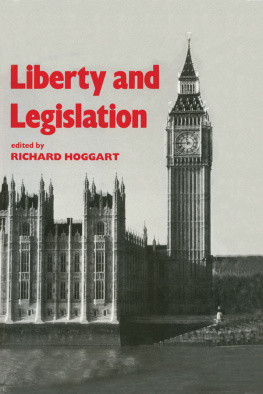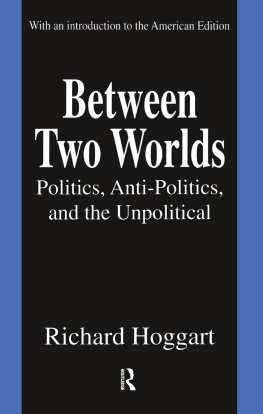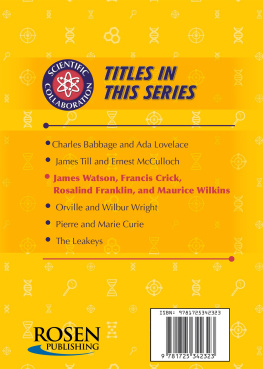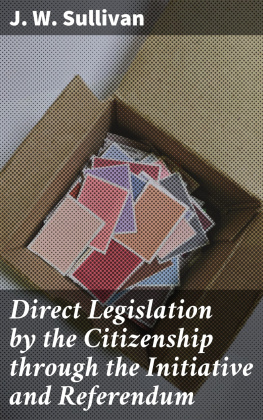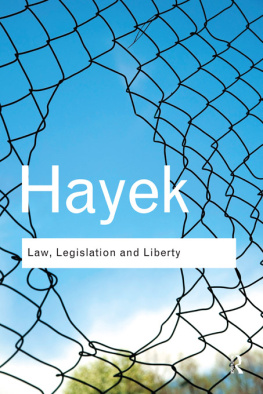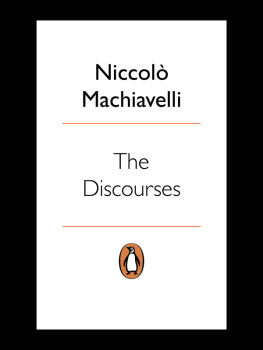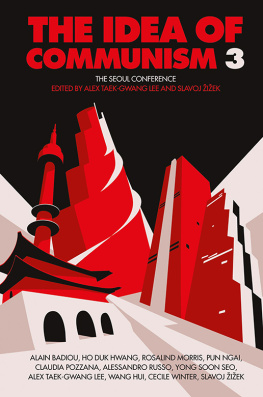First published 1989 by
FRANK CASS AND COMPANY LIMITED
This edition published 2013 by Routledge
2 Park Square, Milton Park, Abingdon, Oxon 0X14 4RN
711 Third Avenue, New York, NY 10017
Routledge is an imprint of the Taylor & Francis Group, an informa business
Copyright 1989 Frank Cass & Co. Ltd.
British library Cataloguing in Publication Data
Liberty and legislation
1. Civil rights
I. Hoggart, Richard, 1918-
323.4
ISBN 0-7146-3308-9
Library of Congress Cataloging-in-Publication Data
Liberty and legislation / edited by Richard Hoggart.
p. cm.
ISBN 0-7146-3308-9
1. Civil rights-Great Britain. 2. Social legislation-Great
Britain. 3. Legislation-Great Britain. 4. Civil rights.
5. Legislation. I. Hoggart, Richard, 1918- .
KD4080.A75L53 1989
323.40941-dc19
88-36430
CIP
All rights reserved. No part of this publication may be reproduced, stored in a retrieval system, or transmitted in any form, or by any means, electronic, mechanical, photocopying, recording, or otherwise, without the prior permission of the publisher.
This book emerged from the feeling - suspicion, or fear - among a good many people that legislation may now be overreaching itself; that the increase in legislative instruments of many kinds, often promoted with good intentions, may be progressively limiting both our individual and our communal freedoms.
These essays show that these laws fall into several different but overlapping areas. There are those, now very common in the developed or Western world, which - in Jane Austens phrase - aim to screw us into virtue by, especially, requiring us on pain of penalties to behave better towards particular groups who are felt to be at a disadvantage.
There are also those instruments which are designed to reduce the dangers, to individuals and to the community, which new scientific knowledge and technological ability may pose (information processing, genetic engineering, the growing power of economic forces, the legal status of the mentally ill).
Those are two types of legislation which, though not altogether new (how could they be?) have taken on particular force in the last two or three decades.
To the decision to enact such laws has to be added the emergence of a call for more legislation on issues (for instance, about the limits of public protest or the control of obscenity) which are always with us but in some periods lie almost dormant and sometimes are rekindled by an apparent change in attitudes among a majority or, more likely, among a vocal minority who claim to be able to assess and speak for the attitudes of the majority. That such up-and-down issues have come to the front so much and so strongly in recent years is thought by some of our authors to be a sign that the habitual social consensus and its tolerance-ensuring muscles or fibres are now under exceptional strain.
At such times there emerges also the call for a British Bill of Rights. So that call is increasingly heard today, and is fuelled by a growing feeling that in the absence of such a Bill more and more decisions which do affect the rights of us all are being taken centrally, executively by the government of the day. It has never been fashionable to praise Quangos, least of all their most publicly-responsible peaks, the Royal Commissions or Departmental Committees on this or that aspect of growing public concern (homosexuality, broadcasting, medical ethics). They had and have their cultural limitations. The present author, to take a minute example, was once described by a King-Chairman of Quangos as not sound because he had made a joke at a public seminar about the English Youth Services deference towards the Established Church (now no longer much in evidence). But the increase in rapid executive decisions, the ignoring of the advice of Quangos, or the refusal even to set them up on matters where they seem clearly called for, has heightened ones sense of their value as rubber-bushes or temporary insulators between the peoples rights and freedoms and the headlong tendencies of some governments. The United Kingdoms poor record at Strasbourg, where it has been so often summoned to defend itself against alleged denials of human rights and has so often been found wanting, has increased the interest in a possible Bill.
The question of human rights here, in Europe and across the world, points directly at the most difficult perspectives of all. This book is largely British in its approach to the issues in its brief, though many of them figure in other nations - similar in some ways to their features here and differing in other ways, according to the different national histories and cultures. But there is a larger and more fully international set of pressures and changes which we felt a book of this kind could not ignore. Hence we have an essay on the long debate, which has taken place chiefly within the agencies of the United Nations, on the role of the mass media and the rights and duties of journalists - a debate which threw into high and indeed gross relief the weakening in many countries throughout the globe of a commitment to the idea itself of free speech and of the search for objectivity in analysis and reporting; and which asserted the powers of governments to deny these principles.
The second of these international essays examines the decline of the sense of the importance of individual human rights in themselves, that single most important of all the ideas which Europe has, at her best, proposed to the world. Many, perhaps most, of us who would be classed as liberal progressives may have a rather simplified view of the universal applicability in all times and places of that key European idea. It is nevertheless chilling to recognise how much in some parts of the world the idea of individual human rights has been swept aside on the grounds that traditional cultural integrity must override it (so women must continue to suffer involuntary circumcision); or because the needs of new-nation-building must be paramount, however much individuals are denied rights in the process. It is a sad irony that some people in the West too have lost patience with the principle of individual rights, having decided that it is too often made the justification and exuse for unbridled commercial competition and its twin, consumerism.
There is another way of cutting this kind of cake which these essays bring out very clearly. At first the cut might seem to fall so as to distinguish between laws which have primarily an individual and those which have a community focus. More than one author, inevitably, quotes Mill on the need to keep laws to the minimum required to protect us from others and others from us. So we agree to be ordered to drive on a particular side of the road. Or we have rights against our neighbour incommoding us by blocking our drive, and he against us. But even this minimum-based kind of law often has a community basis, as with regulations against many kinds of pollution, from that of rivers by industrial firms to noise pollution of a neighbourhood at night. I put the fashionable phrase in inverted commas because it is a typical linguistic, abstract and polysyllabic distortion which reveals a distortion of thought - as does nuclear-free zone when what is meant is a zone run by a Council which is opposed to nuclear weapons - whose freedom will certainly not be recognised if the bomb is ever dropped; or like that appalling conflation positive discrimination; or like direct action to mean by-passing the processes of democratic discussion by the use of violence. To put it mildly, such solecisms cloud public debate on important matters.

